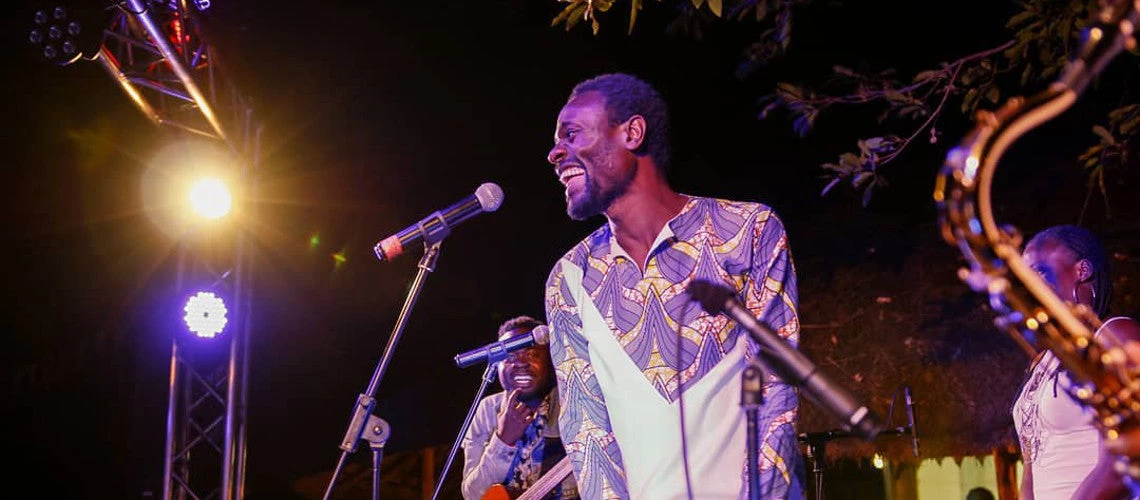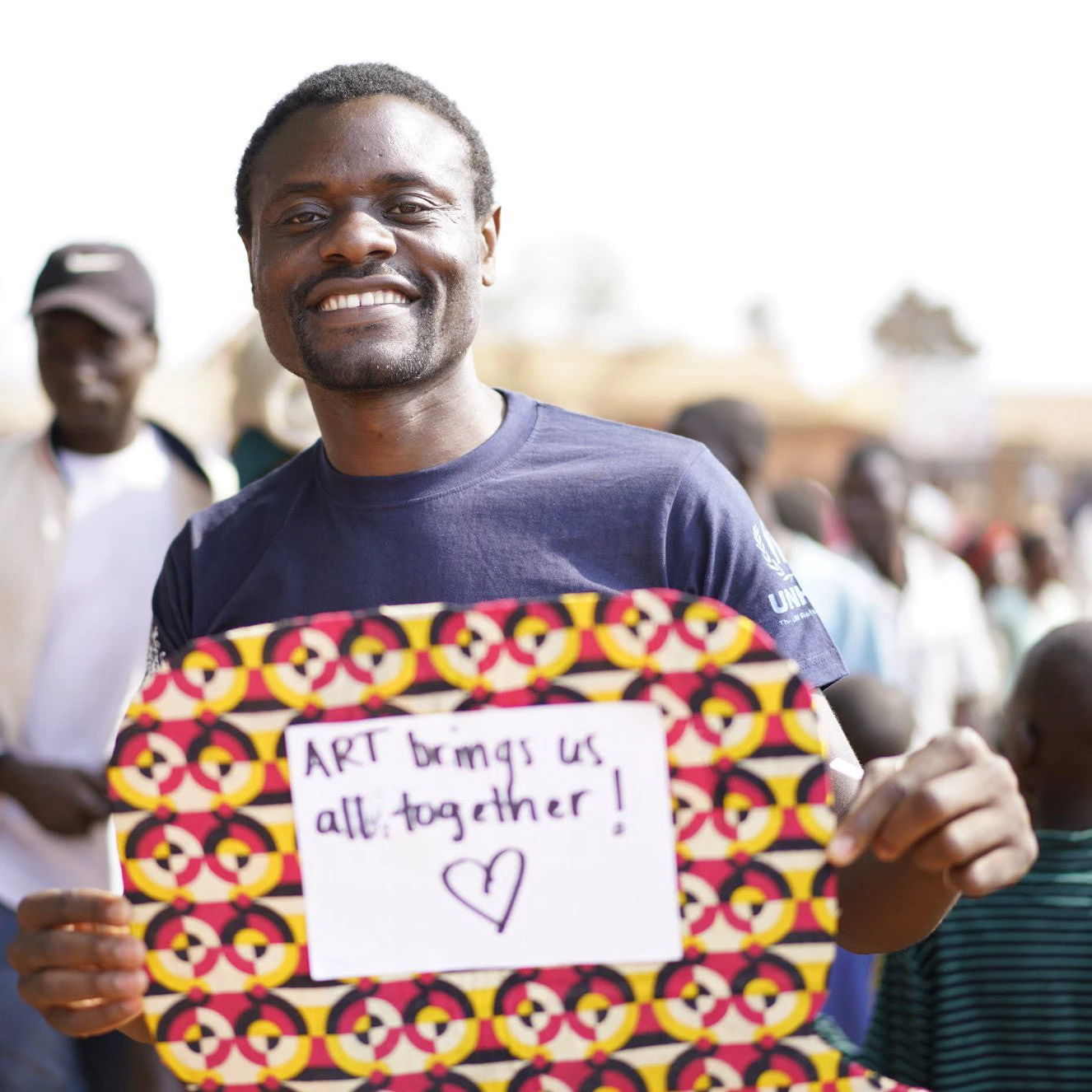 Photo Credit: Clem Kwizombe
Photo Credit: Clem Kwizombe
When I attempted to use words and ideas through music and poetry to open the eyes of people in my country, the Democratic Republic of Congo (DRC), I got in serious trouble. I had to flee and find refuge in Malawi. Arriving in Malawi, I was told by the immigration officer that I could not stay in the capital city, Lilongwe. I was taken to Dzaleka Refugee Camp.
Dzaleka is a Chichewa word meaning “I will never try again.” It was once the worst prison in Malawi. Dzaleka is the only permanent refugee camp in Malawi, with a population of approximately 30,000 refugees and asylum seekers from the DRC, Rwanda, Burundi, Somalia, Ethiopia, and other countries.
In Dzaleka, everything was different from the life I once knew. I experienced for the first time not having a place to sleep. I was given a room to sleep in with 13 other people. There were no opportunities. Refugees face immense limitations in Malawi – they cannot work; they cannot go to Malawian public school and universities; they require permission to travel outside the camp.
It is such a waste of talent in Malawi. I grew depressed and saw many people around me similarly depressed, losing their hope and dreams. I thought I was going to die. But I survived. After surviving for six months, I decided to start living again.
In DRC, I had been a touring hip-hop artist, writer and slam poet. I reawakened this part of myself and started building connections inside and outside the camp. In 2012, I founded Tumaini Letu in Dzaleka, a Swahili phrase meaning “Our Hope,” with a mission to promote cultural exchange among refugees and Malawians and to use the power of words, music and culture to raise awareness about issues facing refugees.
In November 2014, I founded Dzaleka’s first arts and cultural festival, the Tumaini Festival, which is now the flagship program of Tumaini Letu. The festival is an innovative cultural event, developed and delivered by refugees and the host community, which uses entertainment and artistic expression to promote economic empowerment, intercultural harmony, mutual understanding and peaceful co-existence.
Today, the Tumaini Festival is an extraordinary example of a large-scale cultural event within a refugee camp. Across the four previous editions, over 24,000 people have attended the festival, with 153 acts from across Malawi, Africa and the world, sharing the same stages with performers from Dzaleka. Tumaini Festival has united performers of 12 nationalities, including DRC, Rwanda, Burundi, Malawi, Zambia, Mozambique, Belgium, UK, Italy, Japan, Brazil, and South Korea. Past guests include some of Malawi’s biggest musical stars, such as Lawi, Faith Mussa and Tay Grin, alongside cultural performers from the camp such as the renowned Amahoro Drummers.
The festival has attracted national and international media coverage, reaching an estimated 40,000,000 people worldwide, presenting a genuinely different and positive story about refugees. Tumaini Festival has become a community celebration that residents of Dzaleka view as their own event, which they look forward to each year.
The festival also brings economic growth and tourism to the camp and surrounding villages. In preparation, the festival employs builders, carpenters and tailors from the camp. During the festival, refugees set up bars, food stalls, and sells their crafts and other goods to the more than 10,000 visitors that stream into the camp.
Today I continue my work as a performer, multi-lingual poet, and advocate for refugee rights and peace in Africa, performing at the largest events and venues across Malawi. As a motivational speaker, I share my message to students in schools and universities in Malawi and with the broader public through organized platforms such as TEDxLilongwe. In 2015, I released my debut poetry album ‘Far from Home’, sharing my experiences as a refugee. The story of the album’s making is featured on Al-Jazeera’s ‘Witness’ documentary series.
It is my hope that through Tumaini, and by continuing to spread my story around the world, I will be able to share the voices of the voiceless, promote a positive message of resilience, and be a role model for the next generation of activists in Africa.


Join the Conversation